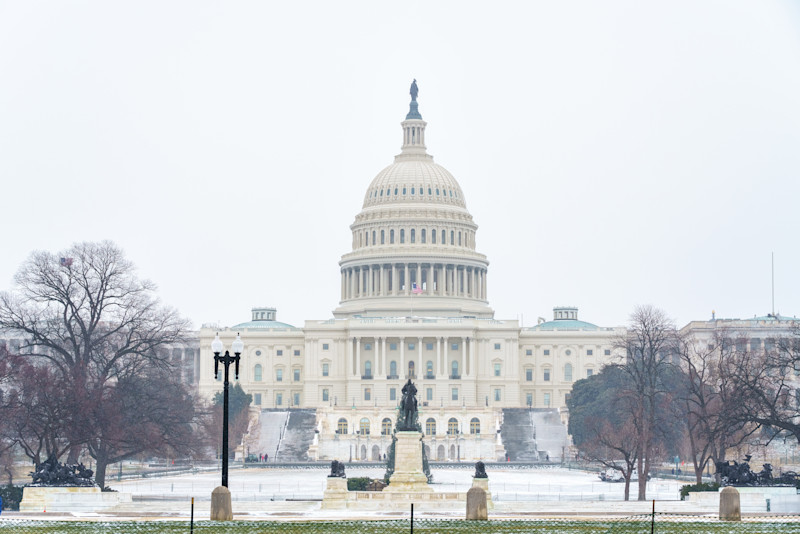With a few more weeks to go, Congress is wrapping up work on foreign aid and defense authorizations. Members are also preparing to tackle appropriations as soon as they return to Washington in 2024, a pivotal election year. A review of what’s happened over the last couple months is below.
New Speaker of the House
Rep. Mike Johnson, R-La., was elected as the 56th speaker of the house after previous votes to elect others failed. He has little legislative experience at this level and never chaired a committee, but he rose in the GOP ranks quickly. He is knowledgeable on defense issues, having several military installations in his district and serving on the Armed Services and Judiciary committees.
Although the new speaker comes from the GOP's anti-leadership wing that made governing so tricky for his predecessors, he is now in leadership and may see things differently. He could be the bridge between the Freedom Caucus and mainstream GOP members – or be the next speaker to be fired by them.
Government Funding
The "laddered" continuing resolution (CR) passed last month is no different from the short-term spending package that then-House Speaker Kevin McCarthy, R-Calif., passed in September, except that it comes with two deadlines rather than one.
Several spending bills to keep the government open were extended until Jan. 19: Agriculture, Energy-Water, Military Construction-VA, and Transportation-HUD. The remaining departments and agencies are funded until Feb. 2, including those overseeing most manufacturing programs (except Energy) – Defense, Commerce, and Labor. Speaker Johnson vowed there will be no more CRs for fiscal year 2024.
Taxes
The possibility for a yearend tax bill is waning. Attaching AMT’s tax priorities (R&D expensing, bonus depreciation, business interest deductibility) to the spending package approved last month didn't materialize. There is still a slim possibility that a tax package could be attached to a must-pass yearend bill, such as the foreign aid bill or the National Defense Authorization Act (NDAA). AMT is working through the R&D Coalition to urge passage of the business tax bill. The coalition has mounted a massive grassroots campaign to put pressure on congressional leadership to get this done in 2023.
Regulations
NAM recently released an update on their 2012 report on the cost of regulations. The study found that the total cost of complying with federal regulations in 2022 is an estimated $3.08 trillion (in 2023 dollars), which equals 12% of U.S. GDP and is larger than the manufacturing sector's entire economic output. The costs are up $465 billion since the 2012 report. AMT continues to push for relief as a member of NAM’s Manufacturers for Sensible Regulations coalition.
Trade
The Asia-Pacific Economic Cooperation group of 21 countries met in San Francisco last month. The main events were on the sidelines.
President Joe Biden met with Chinese President Xi Jinping to begin the restoration of diplomatic ties and military communication between the two superpowers. Biden described the meeting as "some of the most productive" talks and touted the resumption of military-to-military communications.
A meeting of the Indo-Pacific Economic Framework was also held with its 14 members, which includes the United States, Japan, India, Australia, Korea, and Singapore. Commerce Secretary Raimondo announced progress on three of the four "pillars": Pillar 2 – Supply Chains (signed); Pillar 3 – Clean Economy; and Pillar 4 – Fair Economy. Unfortunately, there was no progress on the central pillar, Pillar 1 – Trade. It is a significant sticking point.
In mid-2018, the Trump administration imposed Section 232 tariffs on steel and aluminum imports from nearly every country – including close allies in Europe. The EU retaliated, including motorcycles, bourbon, peanut butter, and jeans – obvious things Americans can't do without. In October 2021, Biden announced a deal with the EU to replace the Section 232 tariffs with a tariff-rate quota system, allowing duty-free imports of EU-made metals up to a level in line with historical trends. In return, the EU suspended its retaliation for two years. Talks to come up with a more permanent solution collapsed in October. AMT joined several like-minded organizations on a letter to administration and congressional leadership urging a resolution.
AI Initiative
There is a big focus on artificial intelligence (AI) in the administration and Congress. Congress held multiple hearings on the topic this year, and the administration announced new export controls on AI chips and equipment.
Most recently, Biden issued an executive order (EO) on AI to promote "safe, secure, and trustworthy development and use of artificial intelligence." The EO addresses issues such as AI's role in national security, public health, privacy, consumer fraud, and worker protections. Congress is expected to follow up with legislation to strengthen portions of the EO, particularly as it relates to China.
Your Voice Is Critical
As always, your engagement with your elected officials is what moves the needle forward. If you have questions or need help contacting them, contact me at athomas@AMTonline.org or call 571-216-7448.









